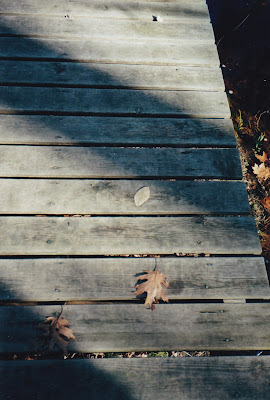Kayaking on the South River last week I realized that, once again, summer has ended. It was the marsh grass that decided it for me — throughout the spring and summer I observed the salt marsh growing greener and taller, more and more vibrant with each passing week. But paddling along under the late afternoon sun last Friday, I noticed that that green had begun to turn gold, that the character of the marsh had begun its inevitable autumn transition from growth to recession. Fall has begun.
Birth, growth, age, death — nature is governed by such cycles. We rejoice in the spring when we see new buds on the trees, when we see those first green leaves on the oaks and elms. We watch with wonder as the trees come into their full foliage, and then observe with both admiration and resignation when the green turns to red, orange and brown. Everything born will someday die. There is beauty in these cycles — and sadness — and comfort.
Birth, growth, age, death — and birth again. The marsh will turn from gold to brown, the leaves will turn color and then fall to the ground. Winter will come, but spring will follow. The cycle will continue, year after year.
Seeing the salt marsh begin to age and die, I feel myself buckling down for another short New England fall and another long winter. I am sad to see summer draw to a close, sad that eight or nine months will pass before I will swim in the South River again. But I know without a doubt that summer will return, that spring will follow the winter, and that next April or May I will detect signs of greening in the marsh. The sun will draw closer, the water will grow warmer, the cycle will begin anew.
The arrival of autumn reminds me of nature’s innate balance. The Autumnal Equinox, September 22, is one of two days in the year when the day is of equal length as the night. For six months from the end of March until the end of September, we enjoy longer days and shorter nights. Then for the remaining six months, the nights are longer. But on those two days in between, the vernal and autumnal equinoxes, day and night, light and dark, are in complete balance. Only two days out of 365.
It makes me stop and think. I’ve devoted my life to striving for balance: work vs. play, activity vs. rest, time with others vs. time to myself. It’s a constant struggle because the variables keep changing. Just when I begin to feel comfortable with the routine of my job, I am asked to take on a new responsibility. Just when I develop a schedule that permits me reasonable amounts of work, activity, and rest, something changes. Perfect balance is a fleeting thing.
But observing the cycles of nature, I realize that those moments of equilibrium are in fact supposed to be fleeting. Nature spends six months undoing what it spent the previous six months doing. The marsh turns green, but then it turns gold.
by Kezia Bacon
September 1996
Kezia Bacon of Marshfield is the Assistant Director of the NSRWA.

